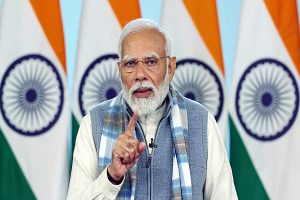Prior to the MC12, the Director General of the WTO, OkonjoIweala, put forward five possible deliverables for MC12. These are: (i) food security and agriculture; (ii) a fisheries subsidies agreement; (iii) WTO’s response to emergencies, including a waiver of certain requirements concerning compulsory licensing for Covid-19 vaccines; (iv) a decision on extending or discontinuing the current moratorium on levying customs duties on electronic transmissions; and (v) WTO reforms. The WTO has termed the outcome of the MC12 successful, saying that the organisation has secured multilaterally negotiated outcomes on some key trade issues.
The “Geneva package” confirms the historical importance of the multilateral trading system and underlines the important role of the WTO in addressing the world’s most pressing issues, especially at a time when global solutions are critical. For least developed countries (LDCs) and developing countries, the Geneva package is a mixed bag. Of course the MC12 is a success, since the past several ministerial meetings failed to conclude any significant agreements. Despite agreements on a few key trade initiatives by 164 member countries of the WTO, the MC12 declaration provides a compromised outcome on some areas. Food security and agriculture has been the topmost agenda for LDCs and developing countries, particularly in the context of high food prices.
More than 80 developing countries were trying to secure a permanent solution to the problem of public stock for protecting farmers’ rights and for expanding food security programmes by giving out higher support to farmers. Developed countries wanted to take up the issue in the MC13. The MC12 declaration states that the WTO members recognise the need for adequate food stocks that can contribute to domestic food security and encourage WTO members to release their available surplus on international markets, following the WTO rules. Poor countries, which are disproportionately being affected by the food price hike, are expected to benefit from this measure. Another important outcome of the MC12 is the agreement on fisheries.
This agreement was being negotiated for the last two decades or so. The objective of the negotiation on fisheries subsidies was to reduce and eliminate subsidies and other practices in fishing which led to overcapacity and overfishing. The agreement recognises the appropriate and effective special and differential treatment for LDCs and developing countries. In case of subsidy to a vessel or operator engaged in illegal, unreported, and unregulated fishing, the agreement provides exemption to LDCs and developing countries for a period of two years within exclusive economic zones (EEZ).
Moreover, in case of subsidies for fishing or fishing-related activities regarding an overfished stock, LDCs and developing countries will be exempted for a period of two years from the date of entry, to implement this agreement. However, during the negotiating phase, there was a lack of consensus on fisheries subsidies. Developing countries asked for a 25- year transition period for subsidies.












